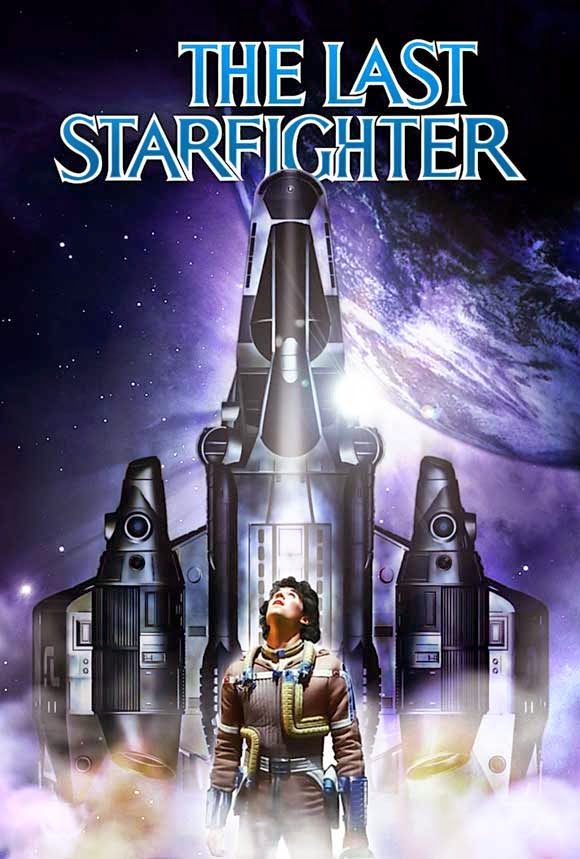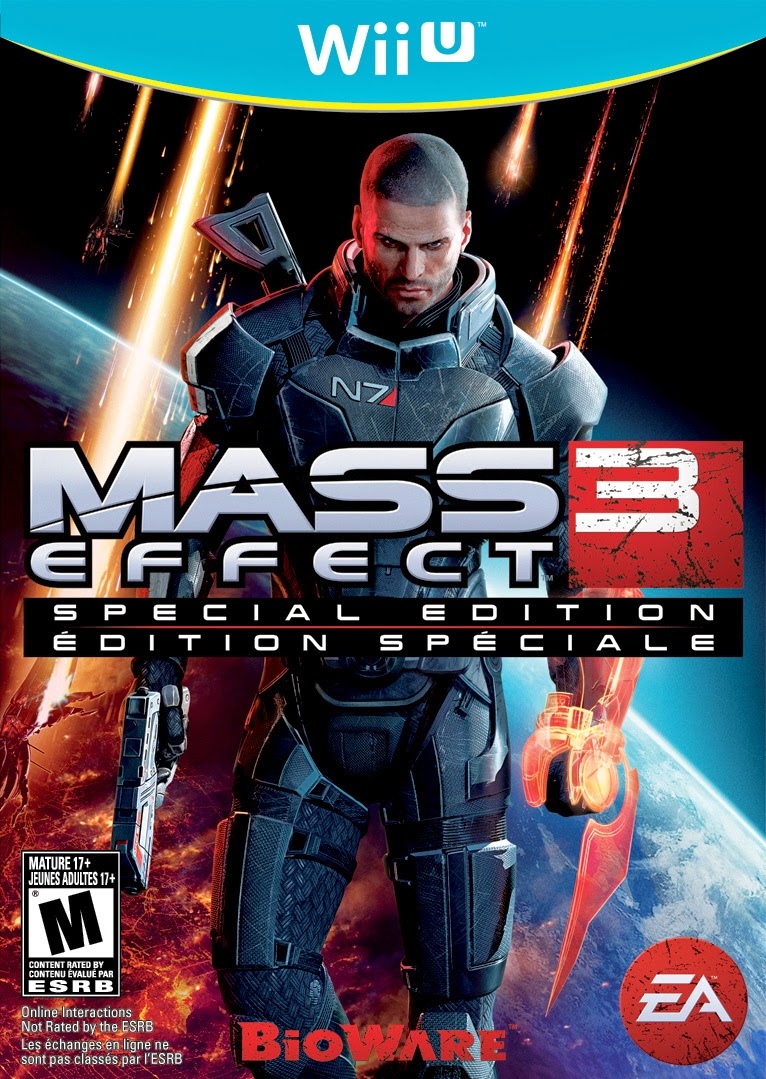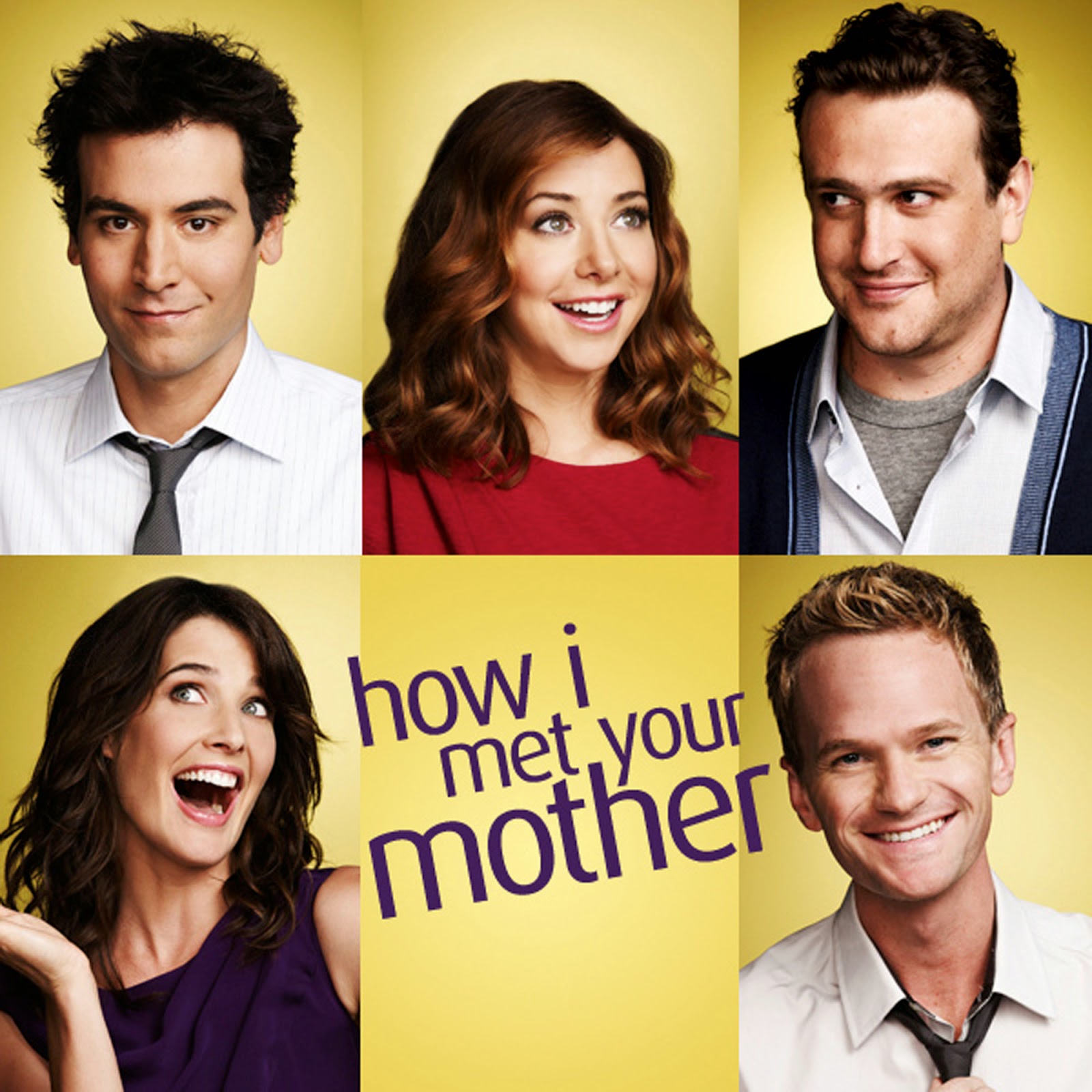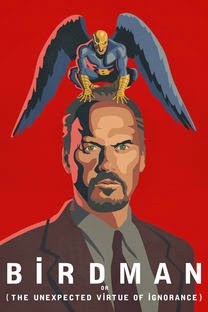The story mimics almost every component of the hero's journey, which made it very predictable. But it's about a kid who goes from playing a video game to becoming a space gunner, meaning it probably wasn't in the Oscar running to begin with. One interesting thing I noticed with The Last Starfighter was its similarity to Ender's Game (1985), a novel about a boy who is brought up to lead a space armada against an intergalactic force. I wonder if there was any relationship between the movie and Ender's Game or if both were just coincidental products of that time period...
Monday, March 23, 2015
The Last Starfighter
Oh man I don't know how I managed to get to my current age without watching this gem. The Last Starfighter (1984) features a young high school age boy who lives in a trailer park community. The boy plays and masters an arcade game at the trailer park, which leads to him being recruited into an intergalactic defense force. The arcade game is used as a device to test the player's competency as a spaceship gunner. Once the player reaches a certain score, they are abducted and turned into soldiers set out to save the universe.The CGI in the film was impressive for how old it was. It must have cost a fortune to implement that kind of technology back then.
Sunday, March 22, 2015
Design Thinking for Business Innovation, University of Virginia
It's funny the terms that materialize and trend in the business world. "Design Thinking" is another one of those terms. "Design Thinking is seen as offering a new approach better-suited for dealing with the accelerating pressures for growth and innovation faced by so many organizations today." The process for Design Thinking involves asking four questions:
- The current reality (what is?);
- The envisioning of a new future (what if?);
- The development of some concepts for new business opportunities (what wows?); and
- The testing of some of those concepts in the marketplace (what works?).
Design Thinking follows a process of rapid prototyping and playtesting to come up with products that fill needs for specific markets. This is not something that is new, companies like Apple have just slapped a new name on it and brought it to the public's attention. My company follows a nearly identical process which we mostly refer to as "iterative design." We are constantly adjusting the product throughout the development cycle, essentially meaning that we are never "done" developing. In my opinion it does not matter which of these trends you grab onto, as long as your organization makes a thoughtful plan and sticks to it.
The University of Virginia's class on Design Thinking is a very high level course, but students still walk away with several tools for developing and marketing new products. The ethnography and storytelling tools for example teach students how to market business solutions in a memorable way and how to properly test those solutions with the target market.
I do wish they spiced up the presentation of the material a little bit. Class lecture videos were mostly made of a single professor talking in front of a green screen for varying amounts of time. Sometimes industry professionals would give examples of how they used the tools presented in the course. I have been part of other courses that interrupt lectures to test the student's understanding of the presented material. This at least gives the student a little bit of interaction with the material (outside of homework assignments). With that said, I was able to relate to much of what was being presented. I recommend this course as a casual reminder of how to properly plan and execute new solutions for the everyday business professional. Take the class for free here!
The University of Virginia's class on Design Thinking is a very high level course, but students still walk away with several tools for developing and marketing new products. The ethnography and storytelling tools for example teach students how to market business solutions in a memorable way and how to properly test those solutions with the target market.
I do wish they spiced up the presentation of the material a little bit. Class lecture videos were mostly made of a single professor talking in front of a green screen for varying amounts of time. Sometimes industry professionals would give examples of how they used the tools presented in the course. I have been part of other courses that interrupt lectures to test the student's understanding of the presented material. This at least gives the student a little bit of interaction with the material (outside of homework assignments). With that said, I was able to relate to much of what was being presented. I recommend this course as a casual reminder of how to properly plan and execute new solutions for the everyday business professional. Take the class for free here!
Tuesday, March 17, 2015
Repo! The Genetic Opera
I am not very familiar with rock operas (other than the occasional Meatloaf song), but I decided to give Repo! The Genetic Opera a try. The film had potential but it favored gore and fan service too much for my taste. I enjoyed the art style along with the music. The setting felt very dark with comic book-like exaggeration, similar to Tim Burton's Batman. The music was pretty good as well. I did not enjoy the extreme gore and oversexualization. It was not uncommon for a character to be sliced open then roll around in puddles of their own blood. The point of these extremely graphic scenes may have been to shock the viewer, but I think they may have taken things a step or two too far. I could say the same thing for the costume design. The idea probably was to portray a future where individuals are so consumed in themselves that they will do anything to maintain their beauty and youth, hence the premise of a company growing profitable by up-selling organ transplants with breast implants and other physical enhancement procedures. I wanted to like this movie, but guts and gore for the sake of guts and gore is not my taste.
Tuesday, March 10, 2015
Mass Effect 3: Special Edition
I enjoyed how the story of Mass Effect 3 unfolded. The game used the string of pearls approach, guiding the player along a linear path, interrupting periodically with areas of open gameplay and cinematic cutscenes. The folks at Bioware do a good job of disguising this technique by urging the player to hurry through intense moments using character dialogue. If I were on the way to rescue an ambushed platoon of soldiers for example, I could hear the soldiers bark out over the radio "we're not going to last much longer, we need an evac!" There usually was not a penalty for taking your time in missions like this, but it sure felt like I needed to hurry in order to save lives. Their is a lot of risk in using this rushed dialogue technique in video games, but if done correctly the reward is exciting gameplay. Bioware nailed it.
Many people complained about the ending of the game, but I don't have a problem with it. At the end, the player is presented with a choice. I won't go into too much detail about what those choices were, but I can tell you that they left me feeling conflicted. Essentially you are forced to settle an argument that is made throughout the entire game, and the side that feels the most "right" is one that you have been fighting against for the entire journey. In the game's final moments you decide the fate of yourself, Earth, and future civilizations. Heavy stuff.
You can tell that Bioware spent a great amount of time developing the background for each galaxy, each planet, and each alien race (they even went as far as talking about the diets of certain races). This brainstorming into the Mass Effect universe showed through in the artistic detail of each alien species.
The graphics for Mass Effect 3 were as expected, good but not great, and I'm okay with that. My experience isn't ruined by a few large pixels. I know the Wii U trails other major consoles when it comes to graphic performance. I am now convinced that the console makes up for what it lacks in the graphics department with the new technology of the Gamepad.
I chose to buy the special edition and play the game on Wii U to see how the game had been adapted for different technology. Mass Effect 3: Special Edition uses the Wii U Gamepad as the player's omni tool: a digital multi-tool that lets the player control NPCs on the battlefield and see incoming threats. At first I was skeptical of buying the game in this format. I feared that I may get a "diet" version of Mass Effect 3 that had to remove key features in order to support this technology. The truth was exactly the opposite. The Gamepad enhances the battlefield experiences and I found myself relying on the omni tool in crunch situations. In fact I would panic at times when my tool would lose signal or go offline (certain points in the story made it believable that your map should be offline i.e. while underground or after an EMP). The story does an excellent job of describing the omni tool as well. Instead of giving the player an added sense of awareness without explanation, (like a minimap) the omni tool is presented as a perk of being in the alliance military.
I no longer see the Wii U as a console that can't handle the modern game as well as other consoles, but as one that can take that game and expand upon it. I look forward to exploring this further with Deus Ex: Human Revolution Director's Cut.
Many people complained about the ending of the game, but I don't have a problem with it. At the end, the player is presented with a choice. I won't go into too much detail about what those choices were, but I can tell you that they left me feeling conflicted. Essentially you are forced to settle an argument that is made throughout the entire game, and the side that feels the most "right" is one that you have been fighting against for the entire journey. In the game's final moments you decide the fate of yourself, Earth, and future civilizations. Heavy stuff.
You can tell that Bioware spent a great amount of time developing the background for each galaxy, each planet, and each alien race (they even went as far as talking about the diets of certain races). This brainstorming into the Mass Effect universe showed through in the artistic detail of each alien species.
The graphics for Mass Effect 3 were as expected, good but not great, and I'm okay with that. My experience isn't ruined by a few large pixels. I know the Wii U trails other major consoles when it comes to graphic performance. I am now convinced that the console makes up for what it lacks in the graphics department with the new technology of the Gamepad.
I chose to buy the special edition and play the game on Wii U to see how the game had been adapted for different technology. Mass Effect 3: Special Edition uses the Wii U Gamepad as the player's omni tool: a digital multi-tool that lets the player control NPCs on the battlefield and see incoming threats. At first I was skeptical of buying the game in this format. I feared that I may get a "diet" version of Mass Effect 3 that had to remove key features in order to support this technology. The truth was exactly the opposite. The Gamepad enhances the battlefield experiences and I found myself relying on the omni tool in crunch situations. In fact I would panic at times when my tool would lose signal or go offline (certain points in the story made it believable that your map should be offline i.e. while underground or after an EMP). The story does an excellent job of describing the omni tool as well. Instead of giving the player an added sense of awareness without explanation, (like a minimap) the omni tool is presented as a perk of being in the alliance military.
I no longer see the Wii U as a console that can't handle the modern game as well as other consoles, but as one that can take that game and expand upon it. I look forward to exploring this further with Deus Ex: Human Revolution Director's Cut.
Sunday, March 8, 2015
How I Met Your Mother
After several weeks of binge watching How I Met Your Mother, I have finally finished all nine seasons. Spoiler alert, if you plan on watching the show, continue no further.
I particularly enjoyed the glimpses into future seasons. By laying the ground work for future events, it never felt like there was a lull in the show. You are always looking forward to how the story progresses toward the next big event. Other shows like Lost and Supernatural have episodes that do not add any value to the plot and seem to serve as a desperate means to stretch the show for another season. By the time the end of that show comes around, you feel like it has skipped out on what originally made it intriguing. But you can't sacrifice all that time you invested without seeing the end, right? How I Met Your Mother was not like this, and seemed well thought out from the beginning with the end in mind.
Even though the story and character arcs progressed nicely, I never did like Lily very much. For some reason the kleptomania, catch phrases, inability to keep a secret, lesbian fantasies, frequent crying, and very poor decision making skills added up to a character that was more annoying than quirky. To be fair, it was not just Lily who was annoying. Every character got under my skin at one point or another, especially after watching multiple episodes in a row. I do give the writers credit for character consistency through all nine seasons. Halfway through the show you are able to predict how characters will react to situations because you are in tune with their personalities. That may be why it's sad when the characters move on with their lives and the show finally comes to an end.
Despite being a comedy with ample moments of ridiculousness, the show comes to a very sobering end. Ted works so hard to find the love of his life, and in the end only gets her for a few years before she passes away. The entire last season takes place at Barney and Robin's wedding and they end up getting divorced shortly thereafter. Barney goes back to giving up on love and starts shamelessly hitting on girls who are half his age. He does ultimately find meaning in the daughter he has from one of his escapades. Lily and Marshall ultimately recover from their spat and grow old together. I guess every character does find happiness, but not without taking some bruises first. The show actually models life pretty well. You live, you love, and you get old fast. How I Met Your Mother teaches us that life is short, and you have to enjoy every moment.
Tuesday, March 3, 2015
Birdman
I am still contemplating all the points this movie touched on more than a week after watching it. One of the main points being that today's movie industry is neither deep nor diverse. Alejandro González Iñárritu, the director of Birdman, argues the following: what makes a "successful" movie does not necessarily make a great work of art. I agree with Alejandro's point of view, however not to the same extreme. I will agree that Hollywood has identified a formula for raking in massive amounts of cash: spend lots of money hiring big name actors and adding special effects, add in the standard plot of good versus evil, and leave room for sequel after sequel. The use of this formula does make me upset sometimes, however I am not enraged. This is the way of the world. Not everyone who goes to see a movie is basing its quality off of its contributions to the world of art. The point is to be entertained, and some people find entertainment in watching things blow up for 2+ hours! I could see how it would be upsetting for an actor to make less money than someone who is less talented than you because of their participation in the standard Hollywood formula, however that is your choice. You are not a victim in this scenario, you may be a "purist" or a "real artist," but not a victim.
I also do not believe the use of special effects cheapens a movie's quality or appeal. If time in a movie is not spent on a close up of a character's facial expressions or dialogue, and is instead used to show a beautiful CG landscape that could not be achieved (or would be very difficult to achieve) through traditional filming, then that is just showcasing the talents of other artists instead of the actors. The people behind the explosions and sci-fi worlds in film are artists. They are 3D environment masters, programmers, and special effects teams. These scenes they create take direction and storyboarding to achieve, much like traditional film making. Arguing against this feels to me like an old person refusing to learn how to use email or a smart phone because these things are part of the problem with today's lazy youth.
My apologies for the rant. I found Birdman to be a great movie that makes its audience think, and I wouldn't be surprised if the continuous shot technique started showing up in more movies. The actors, writers, and directors in this movie worked for much less money than the average box office hit, and it paid off (9 Academy Award nominations and 4 Academy Awards). Birdman and Alejandro González Iñárritu sure did get a lot of praise from the industry it criticizes so much, perhaps adding another level of comedy to the movie.
Subscribe to:
Posts (Atom)





